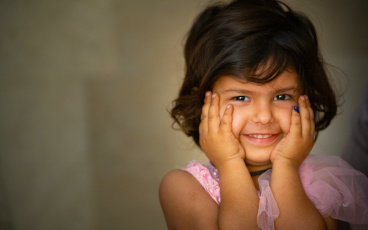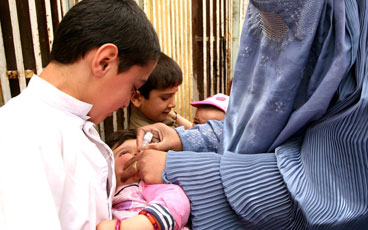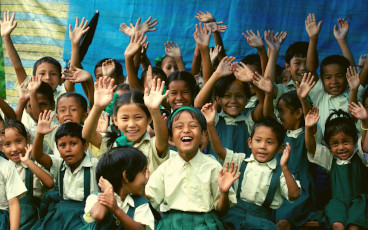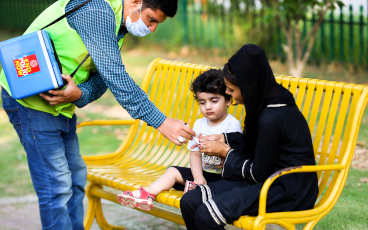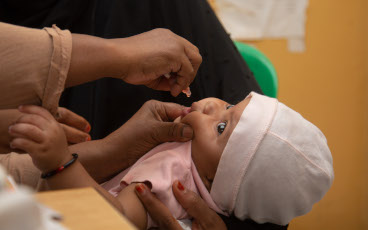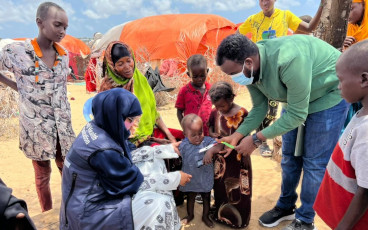Reviewing the Progress towards Polio Eradication in Africa
With nearly two years since the last case of wild polio on the continent, the Africa Regional Certification Commission has met to review progress.
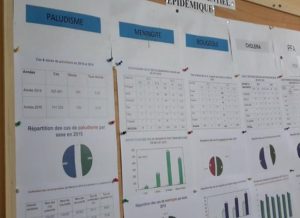
The annual meeting of the Africa Regional Certification Commission (ARCC) for the Eradication of Polio took place in Algeria from 27 June–01 July 2016 to assess progress towards the certification of the African region as polio-free. A Secretariat comprised of representatives of the World Health Organization (WHO) from the African region chaired the meeting of 47 African Member states, represented by National Polio Committees.
For certification, all countries in the WHO Region need to have had no case of wild polio for three consecutive years in the presence of high quality Acute Flaccid Paralysis (AFP) surveillance systems. The last wild poliovirus (WPV) type 3 case had onset of paralysis on 10 November 2012 and the last WPV type 1 case had onset on 24 July 2014, with both reported from Nigeria. WPV type 2 has been eradicated globally after the last case reported from India had onset of paralysis on 24 October 1999. No single country can be certified as polio-free; certification can only occur on a WHO regional basis. With four of six WHO regions already certified polio free, only the Eastern Mediterranean and African regions remain to be certified in the path towards global eradication, and hence constitute a key priority for the GPEI.
The meeting marked good progress towards certifying the region free of wild poliovirus, with complete documentation submitted by Niger, Chad and Mozambique. This indicates that these countries can provide certification standard evidence of three consecutive years without transmission of the virus and have strong surveillance networks in place. The remaining countries are scheduled to submit documentation in the year ahead. The meeting also reviewed progress reports from Algeria, Cape Verde, Gabon and Ethiopia.
The ARCC commended the successful switch from trivalent to bivalent oral polio vaccine (OPV), and the timely submission of validation reports that highlight the progress made at a national level towards meeting the criteria of the ARCC for immunisation and surveillance activities. However, the Commission expressed concern over the global shortage of the inactivated poliovirus vaccine (IPV), an ongoing issue that the World Health Organisation and its partners are working to resolve.
Despite the high number of countries that have successfully submitted their documentation to the ARCC, major challenges remain. The ARCC flagged the inadequate surveillance quality and sub-optimal population immunity assessed though vaccination coverage in some countries which need to be resolved in order for certification to be achieved. While progress has been made in improvements to routine immunisation coverage at the national level, concerns remain about low population immunity and surveillance gaps in more vulnerable areas at the sub national levels. Overcoming these challenges requires urgent action from Member States, alongside the continuing support of partners from across the Global Polio Eradication Initiative. It is not just for certification that momentum must be maintained; it is imperative to prevent Africa being re-infected by the virus spreading from Pakistan or Afghanistan, again paralysing children in Africa. We must redouble our efforts to reach every child in the African region so as to avoid setbacks in the progress made against the virus so far.
The ARCC highlighted the steps necessary to build on the progress towards certifying Africa polio-free. It is imperative that countries that have yet to be certified continue to drive momentum towards polio eradication, and are diligent in the submission of the comprehensive national documentation required. The Commission stressed that in light of the recent switch to bivalent OPV, countries must redouble efforts to strengthen immunization system, particularly at subnational levels where coverage is lower. Containment most also remain a top priority to support the certification process; countries must finalise the second phase of containment according to GAP III, the WHO Global Action Plan to minimize poliovirus facility-associated risk after the eradication of certain types of wild polioviruses and the phasing out of oral polio vaccine use.
With nearly two years since the last case of wild polio on the African continent, there is still much to do in order to certify the Region. Only by vaccinating every last child and finding every last virus even in the countries no longer with endemic poliovirus will we reach the goal of being polio-free across the African continent.


